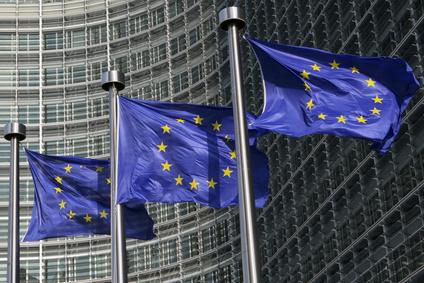For decades, the process of European integration has been hampered by the predominance of the Westphalian system of international relations. According to this system, which owes its name to the 1648 Peace of Westphalia, the process of European integration had to result either in the creation of a federal European state or in the establishment of a confederal union of states. Founded in 1992, the EU defied the Westphalian paradigm from the outset.
Guest blog by Jaap Hoeksma, Philosopher of Law, Director of Euroknow and Creator of the Boardgame Eurocracy
The EU is not a state, since the sovereignty in the Union lies with the -by now- 28 member states. At the same time, the European Union can neither be regarded as a union of states, since the EU is also composed of citizens, has a directly elected parliament and an independent Court of Justice.
The relevance of the Westphalian system of international relations can be illustrated by underlining that the United Nations Organisation its based upon its principles. Aspiring entities or polities can only be admitted as a member of the UN if they comply with the requirements for statehood as contained in the 1933 Montevideo Convention on Rights and Duties of States. The exclusive predominance of the Westphalian paradigm in the field of international relations may explain why politicians and theorists of the process of European integration attached so much importance to the categorisation of the EC/EU in Westphalian terms. Actually, their endeavour resulted in the emergence of the 'paradox of the finalité politique'. This perplexing term was used in order to describe the situation in which the proponents of a federal EU and the advocates of a confederal union of states could only reach agreement on specific policy issues if and as long as the words end goal or finalité politique of the process of European integration remained unspoken.
The lasting contribution of the 1992 Maastricht Treaty to the theory of international relations is that it construed the EU as the first-ever international organisation with citizens. Article 8 TEU stipulated that the citizens of the member states are also citizens of the Union. In hindsight, it seems quite understandable that this provision should have sparked a flurry of misunderstandings. When the dust of the rejection of the Constitution for Europe had been cleared, however, it started to dawn that citizens constitute an essential requirement for public organisations to function in a democratic manner. Putting this conclusion in a political catchphrase, one could say: No citizens, no democracy. It may therefore be suggested, that the ultimate aim of the introduction of EU-citizenship has been to transform the EU from an international organisation into a European democracy.
The endeavour to turn an international organisation into a transnational democracy has never been undertaken before. From a civic perspective, however, it should have been put beyond doubt from the start that, in their capacity of EU-citizens, the citizens of the member states are entitled to a similar level of legal protection and democratic influence as they enjoy in their home states. In the 21st century, citizens may expect that, if 28 democratic states decide to share the exercise of sovereignty in order to realise common goals, the organisation, which they establish to this effect, should be democratically governed too. In this line of thought, the long term aspiration of the EU is to evolve into a union of democratic states based on the rule of law, which also constitutes a law-based democracy of its own. From a civic point of view, this polity may be described as a union of states, in which the citizens can participate both in the national democracies of their member-state and in the common democracy of the Union.
Seen against this background, the EU embodies a classic example of a paradigm shift in progress. The prevailing Westphalian paradigm of international relations, which underpins the functioning of the United Nations Organisation, holds that democracy and the rule of law can only come to fruition within the boundaries of a sovereign state. As shown above, the EU can neither be identified nor explained in terms of the Westphalian system. In order for the EU to develop in its own distinct manner, politicians and theorists should therefore replace the statal paradigm of the Westphalian system of international relations with the civilian perspective of democracy and the rule of law.
